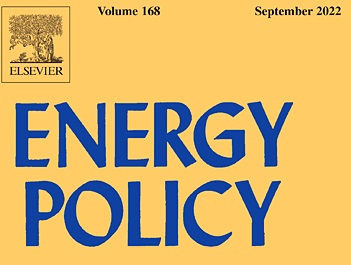As co-author of the article Energy poverty and emerging debates: Beyond the traditional triangle of energy poverty drivers, EmpowerMed is pleased to let you know that the final version – containing full bibliographic details – is now available online.
This paper evaluates whether, how, and why policy documents in six diverse European countries (Spain, France, Portugal, the United Kingdom, North Macedonia, and Slovenia) link energy poverty to other related policy areas. Our exploratory study suggests that the most explicit links to energy poverty are made in energy efficiency policies rather than in energy price and income policies, due to the dominant techno-economic approach to addressing energy poverty.
As countries with a long tradition of addressing energy poverty, France and the United Kingdom integrate energy poverty to a greater extent in linked policies. Policy integration is reflected in EU efforts to include energy poverty in climate and energy policies.
Emerging debates linked to energy poverty include good governance, citizens’ agency, new energy services, and new threats from the energy transition. We argue that the spatial divide of energy poverty across Europe is more than a physical (infrastructural) divide. It is a policy (political) divide embedded in the economic and political space co-shaped by national path dependencies, such as the social welfare system, the energy market, the level of experience of dealing with energy poverty, and the influence of EU policies. These conditions determine the national policy integration efforts linked to energy poverty.
Anyone clicking on this link before October 07, 2022 will be taken directly to the final version of our article on ScienceDirect, which they are welcome to read or download. No sign up, registration or fees are required.
Keywords
Just energy transition, inter-european comparison, policy analysis, policy integration, explicit and implicit links, energy and climate policies
Co-authors:
Ana Stojilovska: Department of Government and Public Policy, Institute for Political Science, Centre for Social Sciences, Tóth Kálmán utca 4, 1097, Budapest, Hungary
Rachel Guyet: CIFE (Centre International de Formation Européenne, Nice, France)
Katherine Mahoney and João PedroGouveia: CENSE – Center for Environmental and Sustainability Research & CHANGE – Global Change and Sustainability Institute, NOVA School of Science and Technology, NOVA University Lisbon, Campus de Caparica, 2829-516, Caparica, Portugal
Raúl Castaño-Rosa: Sustainable Housing Design Research Group (ASUTUT), Faculty of Built Environment, Tampere University, Finland
Lidija Živčič and Tomislav Tkalec: Focus Association for Sustainable Development, Slovenia
Ricardo Barbosa: AdEPorto – Porto Energy Agency, Rua Gonçalo Cristóvão, 347 Fr.B Est.2, 4000-270, Porto, Portugal
